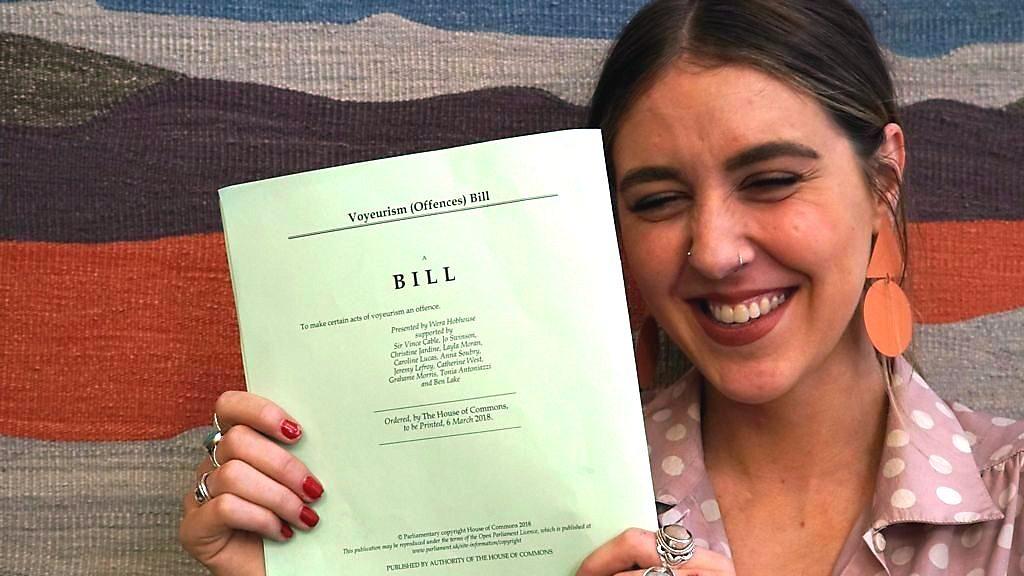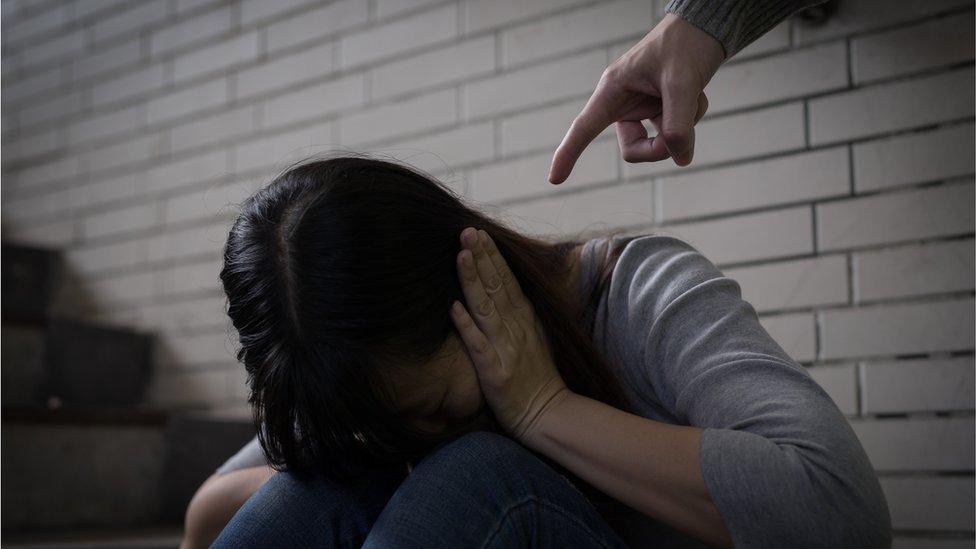Children should be taught about healthy relationships, report says
- Published

A number of recent reports have been critical of aspects of approach to relationships and sex education in Northern Ireland
Children should be taught about "healthy, respectful relationships" from a young age.
That is one of the key actions in a new Stormont framework on Ending Violence Against Women and Girls (EVAWG).
It also said young people should be involved in developing new relationships and sex education (RSE) for schools.
Northern Ireland is the only part of the UK without a specific EVAWG strategy at present.
The Stormont Executive first recommended a strategy should be developed to protect women and girls in Northern Ireland from violence in 2021.
The Executive Office has now published a "strategic framework" and initial action plan for consultation.
The aim of the framework is "a changed society where women and girls are free from all forms of gender-based violence, abuse and harm".
In her foreword to it, the head of the Northern Ireland Civil Service, Jayne Brady, said ending violence against women and girls was "one of the most difficult challenges facing our society today".
"It is also one of the most important," she added.
'Tip of the iceberg'
The action plan defines violence against women and girls as ranging from "everyday misogynistic attitudes and damaging social norms to harmful unwanted behaviours and serious criminal offences".
It said such acts were "overwhelmingly but not exclusively carried out by men".
The action plan also stated that a lot of abuse and harm went unreported, so what is reported is "only the tip of the iceberg".
There are 22 recommended actions in year one of the plan.
Those include a forum to decide how best young people can be taught about healthy, respectful relationships in school - including in Relationships and Sex Education (RSE).
A number of recent reports have been critical of aspects of approach to RSE in Northern Ireland.
A previous consultation on the EVAWG strategy also said that changes to RSE should be part of it.
The action plan includes initial work on measures to combat violence against women and girls in higher and further education, workplaces and the hospitality sector.
It found that an analysis of frontline provision should be carried out to improve services for victims.
That includes increasing the confidence of victims in the justice system.
'Much to change'
The former High Court judge Sir John Gillen had previously recommended extensive changes to how sexual offences were dealt with in Northern Ireland.
Sir John said the justice system had "much to change".

Research suggests that four in five women first experienced men's violence before the age of 20
The Police Service of Northern Ireland recently published its first ever action plan aimed at reducing violence against women and girls.
The overall aim of the strategic framework, meanwhile, is on prevention, "tackling the root causes and stopping the violence before it starts".
Recent research quoted in the framework suggests that 75% of girls aged 16 have "experienced street harassment at least once in their lifetime".
Separate research suggests that four in five women "first experienced men's violence before the age of 20".
The framework also said that 42 women had been murdered in Northern Ireland from January 2013 to June 2023 - one every three months.
'Traumatic justice experience'
Among the measures put forward in the strategic framework are for children to be taught about healthy relationships from "early years" and for "accessible" RSE to be developed in collaboration with young people.
"Our young people are exposed to messages online which undervalue, demean and humiliate women and girls, as well as increased access to pornography from a young age," the framework document said.
"In addition, there has been a recent rise of online influencers who have a toxic influence on men and boys in our society, and negatively impact their views on women and girls."
Youth, faith and sport organisations should also engage men in tackling violence against women, the document said.
A number of other prevention strategies are suggested, including identifying "champions" and influencers to drive a change in attitudes across society.
The framework and action plan have been developed with a range of organisations in Northern Ireland, including Women's Aid, the Women's Resource and Development Agency, Nexus NI and Relate NI.
Sarah Mason from Women's Aid Federation NI said the current level of education around healthy relationships was not sufficient.
"We are leaving our young people to try and figure out relationships and intimate relationships in the palm of their hand in phones.
"And I mean, that's not where it should be. They should be in safe places understanding about respect," she said on the BBC's Good Morning Ulster programme.
"We cannot keep losing women and girls to violence in this country. So the sooner that we get on this road and we start making the changes, the better.
"And money needs to be behind it."
Related topics
- Published12 April 2019

- Published18 November 2020
